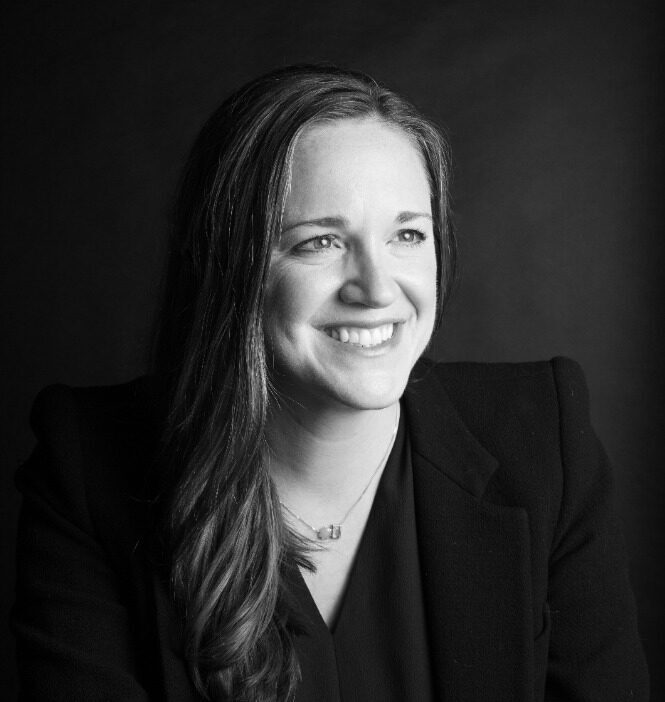Source: Special to Michigan News

Alisyn Malek brings innovation to new world of mobility.

Alisyn Malek brings innovation to new world of mobility.
Alisyn Malek has always been an innovator. As a child, she was a self-described tinkerer – taking things apart and rebuilding them, constantly searching for new ways to do something.
“My parents were both entrepreneurs, so this idea that you could have an idea and bring it out into the world wasn’t foreign,” Malek said. “It definitely helped give me a baseline understanding that you can build things in the world and bring them out to more people, which is subtle but really powerful.”
Her passion for tinkering led her to the University of Michigan, where she earned Bachelor’s Degrees in mechanical engineering and German and a Master’s Degree in energy systems engineering. After graduation, she joined the engineering team at General Motors, but after several years, she moved into a new area at the company – venture capital. And a few years later, she became head of GM’s innovation pipeline.
Each of the positions propelled her toward becoming one of the country’s top innovators.
In 2018, the Smithsonian Institution named Malek one of the top-10 female innovators to watch. At the time, she was chief operating officer and co-founder of May Mobility, an Ann Arbor-based company that builds autonomy systems to transform cities and solve real-world problems.
“Being a founder is an awesome ride,” she said. “I learned a ton about further how to sell, how to scale organizations, get your first customer – all those types of things.”
Being an entrepreneur served her well for her most recent endeavor. In July she became managing director of Newlab Detroit, a collaboration with Michigan Central, Ford Motor Co.’s mobility innovation district in Corktown.
Newlab, founded in 2016 in Brooklyn, New York, recently launched two innovation studios in Detroit. The studios work with Detroit- and Michigan-based accelerators and incubators to solve transportation challenges related to connectivity, autonomy and electrification.
“When I think about some of the work I’m doing now in my role – really partnering up with Michigan Central, we’re aiming at programming this space to be supportive of founders,” she said. “Having been a founder, I have deep empathy, so there are plenty of times when I am helping with pitch decks or just catching up on how difficult it can be to lock in first customer or make that first hire. The level of empathy and different perspective has already been helpful as we are starting to build the community here.”
It’s an exciting opportunity not only for Malek, but also for the region.
“As we think about the future of mobility and especially how that will manifest in Detroit, I was really excited to get to take on this role with Newlab teaming up with Michigan Central in part because Michigan Central is physically located in a really neat spot. We are very close to the river, so when we think about mobility, it’s not just land-based – we can also think water-based. And we’re right on rail lines, so even for land-based, it’s not just car. It’s how do we think about rail? How do we think about truck traffic? I will say we are also looking at aerial mobility. Being located at a convergence of places where we can experiment on those different modes is extremely powerful.”
In addition, the area’s regional transit network and critical border crossing means that Detroit’s mobility isn’t just about the movement of people, but also the movement of goods.
“We have a lot of opportunity to innovate and experiment here,” she said.
And while Newlab Detroit is still in the early stages, it already has started to attract several companies.
“Our doors opened in January, so it’s been fast and furious,” Malek said. “I think some of the companies we’ve been able to attract to this state as well as supporting ones that are growing up locally.”
Norway-based Wheel.me, which uses load-bearing autonomous vehicles used for warehouse applications, chose Michigan for its U.S. expansion based on what is happening at Michigan Central. Another company, Grounded, an early stage electric RV company, also relocated to Michigan because of Newlab.
“Grounded RVs’ founders were looking for an opportunity of where grow their company,” she said. “They were able to learn about what we were starting up at Michigan – not only at Michigan Central, but also the broader network that could be brought to bear in terms of manufacturing, such as local fabrication capability but also co-location and opportunity to expand with OEMs.”
Both were huge wins for Michigan – and for Detroit’s future in the mobility sector.
“For Grounded RVs, it was a no-brainer to relocate to Michigan,” Malek said. “And that currently is not a very common story. We’re excited to grow that, but we also have to get the word out.”

